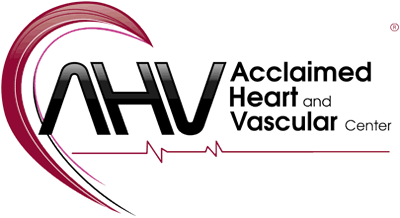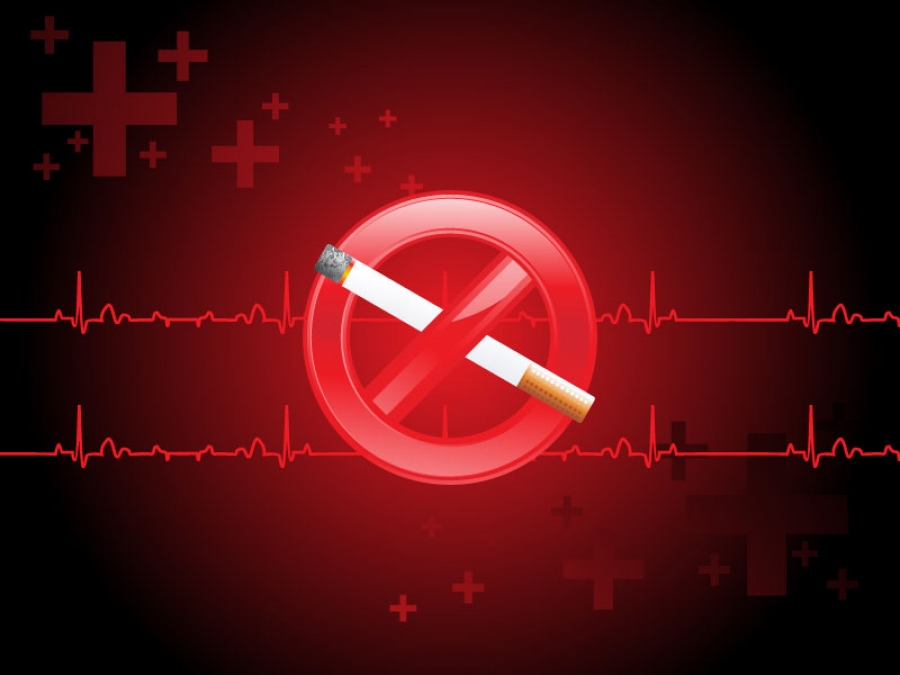According to the Centers for Disease Control and Prevention, the effects of cigarette smoking account for about 480,000 deaths each year in the United States—that is nearly 1 out of every 5 deaths, or 2.4 million annual deaths2. The numbers show that more deaths are caused each year by smoking than deaths from human immunodeficiency virus (HIV), illegal drug use, alcohol use, motor vehicle accidents, and firearm-related incidents combined.
How does smoking affect my heart?
Research has shown that smoking increases heart rate, tightens major arteries, and can cause an irregular heart rhythm (arrhythmia), all of which make your heart work harder. Smoking also raises blood pressure, which increases the risk of stroke.
Although nicotine is the main active agent in cigarette smoke, other chemicals, such as tar and carbon monoxide, are also harmful to your heart in several ways. These chemicals lead to the buildup of fatty plaque in the arteries (atherosclerosis), possibly by injuring the vessel walls. And they also affect cholesterol levels and levels of fibrinogen, which is a blood-clotting material. This increases the risk of a blood clot that can lead to a heart attack or stroke.
The good news is, if you quit smoking, you can dramatically improve your health! Read below to learn how to quit smoking and what happens to your body as soon as you quit.
Once you decide to quit, you are already on your way to a healthier heart and a reduced risk of heart disease.

Acclaimed Heart and Vascular Center
We deliver excellent care with compassion after discussing your health and treatment plan with simplicity.
How do I quit smoking?
You must be ready to quit to be successful. And remember, most smokers try to quit many times before they succeed. Here are some things you can do to make quitting easier:
- Pick a quit date and stick to it.
- Remove cigarettes and other tobacco products from your home, car, and workplace. Also, get rid of lighters, matches, and ashtrays.
- Know your triggers. Be aware of the situations that make you want to smoke. Then, avoid those triggers or think of alternatives. Most people trying to quit find that the urge to smoke passes after a few minutes.
- Tell your family, friends, and coworkers that you are quitting, and ask those who smoke not to smoke around you.
- Ask your doctor all of the options that may help you quit. These aids can also help with withdrawal symptoms and help you focus on changing the behavior and habits that trigger your urge to smoke. It is also important to let your doctor know that you quitting, because nicotine changes the way some medicines work. If you take medicines, your doctor may need to adjust some of them after you quit.
- Join a counseling group or program. Many smokers are able to quit by combining the support of individual counseling or group treatment with over-the-counter or prescription medicines. Research shows that success rates for all methods of quitting are higher when they are combined with a support program.
- Call a quitline. Quitlines are free, telephone-based counseling programs where you are teamed with a trained counselor to help you develop strategies for quitting and help you stick with them.
Beating your addiction to nicotine will take more than willpower and determination. Expect challenges. Most people who are finding it tough to quit will start smoking again in the first 3 months after trying to quit. The difficulty quitting is often caused by the withdrawal symptoms you feel, but these symptoms will go away in time. And even as the physical withdrawal decreases, you may still be tempted to smoke when you feel stressed or down. Be ready for these times. Just knowing that certain feelings can be a smoking trigger will help you handle them.
What happens to your body when you quit?
In the first couple of days and weeks of quitting, you will have cravings for cigarettes, feel hungry, get headaches, and experience constipation. These are all symptoms of withdrawal from nicotine, and they will pass.
Quitting smoking will be very difficult, but you can do it! To help you keep your focus, remember the benefits of quitting, both short-term and long-term, according to the CDC3:
- Within 20 minutes of quitting, your heart rate will decrease.
- Within 12 hours of quitting, the carbon monoxide levels in your blood will decrease to normal.
- Within 3 months of quitting, your risk of a heart attack decreases and your lungs will begin to work better.
- After 1 year, your added risk of coronary artery disease is half that of someone who smokes.
- After 5 years, your risk of stroke is the same as that of a nonsmoker.
- After 10 years, your lung cancer death rate is about half that of someone who smokes.
- After 15 years, your risk of coronary artery disease is the same as that of a nonsmoker.
1American Heart Association, Smoking & Cardiovascular Disease (Heart Disease)
2Centers for Disease Control and Prevention, Tobacco-Related Mortality
3Centers for Disease Control and Prevention, Within 20 Minutes of Quitting
DISCLAIMER: THIS WEBSITE DOES NOT PROVIDE MEDICAL ADVICE
The information, including but not limited to, text, graphics, images and other material contained on this website are for informational purposes only. The purpose of this website is to promote broad consumer understanding and knowledge of various health topics. It is not intended to be a substitute for professional medical advice, diagnosis or treatment. Always seek the advice of your physician or other qualified health care provider with any questions you may have regarding a medical condition or treatment and before undertaking a new health care regimen, and never disregard professional medical advice or delay in seeking it because of something you have read on this website.

